16 Dead In Stampede At Iraqi Shiite Shrine: Ministry
At least 16 pilgrims died Tuesday in a stampede at a major shrine in the Iraqi city of Karbala as they marked the holy day of Ashura, the health ministry said.
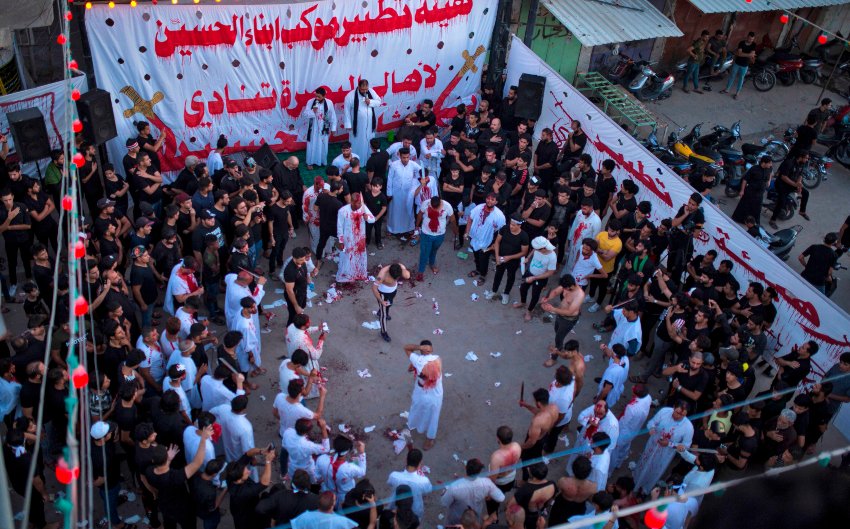
Iraqi Shiites beat their blood-covered heads with swords in the southern city of Basra, during the mourning procession on the tenth day of Muharram which marks the day of Ashura, on September 10, 2019. Photo: Hussein FALEH / AFP
Baghdad: At least 16 pilgrims died Tuesday in a stampede at a major shrine in the Iraqi city of Karbala as they marked the holy day of Ashura, the health ministry said.
Another 75 people were injured at the shrine around 100 kilometres (60 miles) south of Baghdad, said spokesman Saif al-Badr, stressing that the toll was not final.
It is the deadliest stampede in recent history during Ashura, when Shiite pilgrims from around the world swarm Karbala to commemorate the death of Hussein, Prophet Mohammed's grandson.
He was killed in the year 680 by the forces of the Caliph Yazid, a major event which helped solidify the divide between what would become Islam's Sunni and Shiite branches.
On Tuesday, packed processions of black-clad worshippers made their way to his gold-domed shrine in Karbala, carrying black flags with "Hussein" written in red and wailing loudly.
Some whipped their backs and chests to demonstrate their sorrow.
Others -- even young boys -- cut incisions into their foreheads with scalpels or large sabres, leaving streams of blood cascading down their faces.
Similar ceremonies took place in the capital Baghdad and in the southern cities of Najaf and Basra.
Under ex-dictator Saddam Hussein's Sunni-dominated regime, the vast majority of Ashura commemorations were banned.
Now, the day is a national holiday, with streets across the country shuttered to allow for elaborate re-enactments of the Battle of Karbala.
In 2005, at least 965 pilgrims heading to the Imam Kadhim shrine in Baghdad during a different holiday died after rumours of a suicide bomber in the crowd sparked a mass stampede.
The day of Ashura is commemorated by Shiite Muslims worldwide and marks the climax of mourning rituals in the Islamic month of Muharram for the 7th century killing of Imam Hussein, the grandson of Prophet Mohammed, in the Battle of Karbala in 680 AD.
-
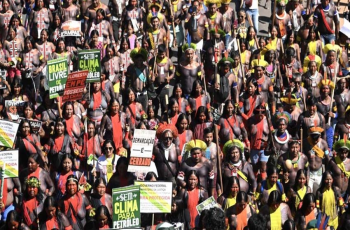
Indigenous people march in Brazil to demand land demarcation
2024-04-24 -

Talks on global plastic treaty begin in Canada
2024-04-24 -
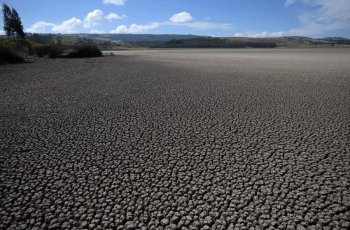
Colombian court recognizes environmental refugees
2024-04-24 -
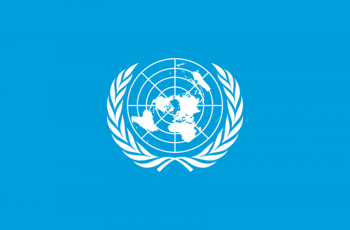
Asia hit hardest by climate and weather disasters last year, says UN
2024-04-23 -

Denmark launches its biggest offshore wind farm tender
2024-04-22 -

Nobel laureate urges Iranians to protest 'war against women'
2024-04-22 -
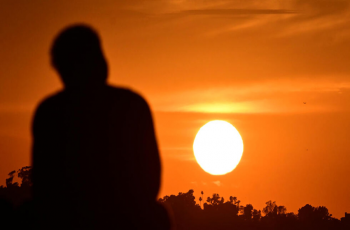
'Human-induced' climate change behind deadly Sahel heatwave: study
2024-04-21 -

Moldovan youth is more than ready to join the EU
2024-04-18 -

UN says solutions exist to rapidly ease debt burden of poor nations
2024-04-18 -
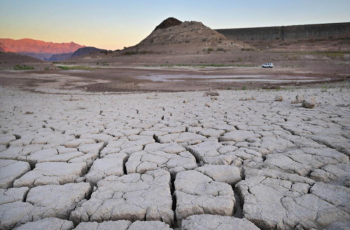
Climate impacts set to cut 2050 global GDP by nearly a fifth
2024-04-18
